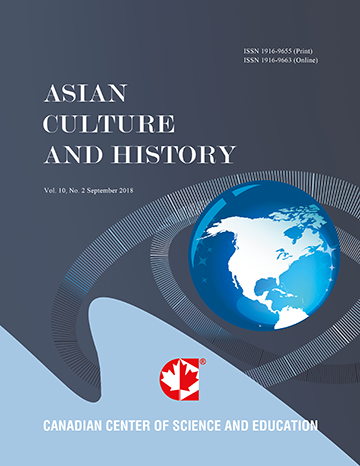Linguistic Taboos: A Case Study on Australian Lebanese Speakers
- Fouad Abi–Esber
- Ping Yang
- Hiromi Muranaka
- Mohamed Moustakim
Abstract
This study aims to investigate how Lebanese Arabic speakers living in Australia utilise their linguistic taboos, with the purpose of comprehending their cross-cultural adaptation in the Australian context. The specific research focal point of this study includes how and why Lebanese Arabic speakers of different age range use linguistic taboo words. A total of 56 Lebanese students were deemed to satisfy the participation criteria. A research tool, NVIVO 10 software, was used to analyse the questionnaires and interviews and to help sort major themes, as identified above, for critical discussion. The results show that the older participants tend to use a specially designed euphemistic form of linguistic taboo whereas the younger participants’ use of linguistic taboo is much influenced by some factors such as peer pressures and video games, and they do not always use more taboo words than older participants as reported in previous research. The results indicate the complicated and dynamic sociolinguistic context of the Lebanese community regarding the use of linguistic taboo in Australia. Additionally, it provides insights into how Lebanese speakers manage linguistic taboos successfully in social interactions using their cross-linguistic skills and cross-cultural knowledge.
- Full Text:
 PDF
PDF
- DOI:10.5539/ach.v10n1p89
Journal Metrics
Google-based Impact Factor (2017): 5.42
h-index (January 2018): 11
i10-index (January 2018): 21
h5-index (January 2018): 6
h5-median (January 2018): 9
Index
- Academic Journals Database
- CNKI Scholar
- COPAC
- EconPapers
- Elektronische Zeitschriftenbibliothek (EZB)
- Excellence in Research for Australia (ERA)
- Genamics JournalSeek
- Google Scholar
- Infotrieve
- LOCKSS
- MIAR
- NewJour
- Open J-Gate
- PKP Open Archives Harvester
- Publons
- RePEc
- Scilit
- SHERPA/RoMEO
- Standard Periodical Directory
- Technische Informationsbibliothek (TIB)
- The Keepers Registry
- Universe Digital Library
- WorldCat
Contact
- Ivan YongEditorial Assistant
- ach@ccsenet.org
